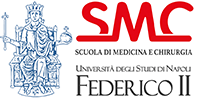




Prof. Mario Cesarelli, Prof. Paolo Bifulco, Prof. Gianni D’Addio, Prof. Paolo Gargiulo, Prof. Dario Gargiulo.
Goals
- Gait analysis’ parameters to classify Parkinsonism;
- Design and assessment of a low-cost, electromyographically controlled prosthetic hand;
- Regent Suit-based rehabilitation on gait EMG patterns in hemiparetic subjects;
- Analysis of the Power Spectrum of Motor Unit Action Potential Trains.
Results
- The implemented algorithms obtained an accuracy greater than 80%, with one of them, namely the Gradient Boosted Tree, achieving the best accuracy (93.5%) and specificity (93.5%) in predicting the presence of Freezing of Gait;
- Modified machine learning schemes for pattern recognition have the potential to significantly reduce the factors (movement of users and contraction of the muscle) affecting the traditional electromyography (EMG)-pattern recognition methods;
- The proprioceptive stimulation of the RS-based treatment induces higher and remarkable restoration of the normal muscle activation timing;
- EMG rectification significantly alters the spectrum characteristics.
Keywords
Electromyography, gait analysis, rehabilitation, robot assisted exercises, foetal heart rate processing, prosthesis.
Collaborations
Fondazione Salvatore Maugeri, BMC, Western Sydney University.






